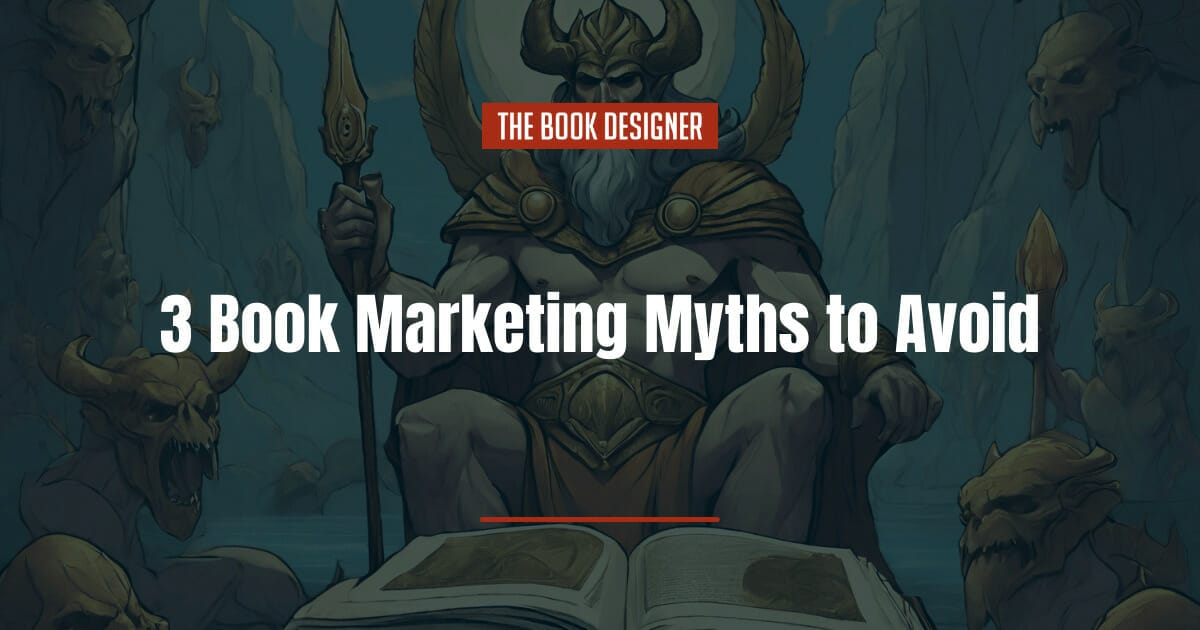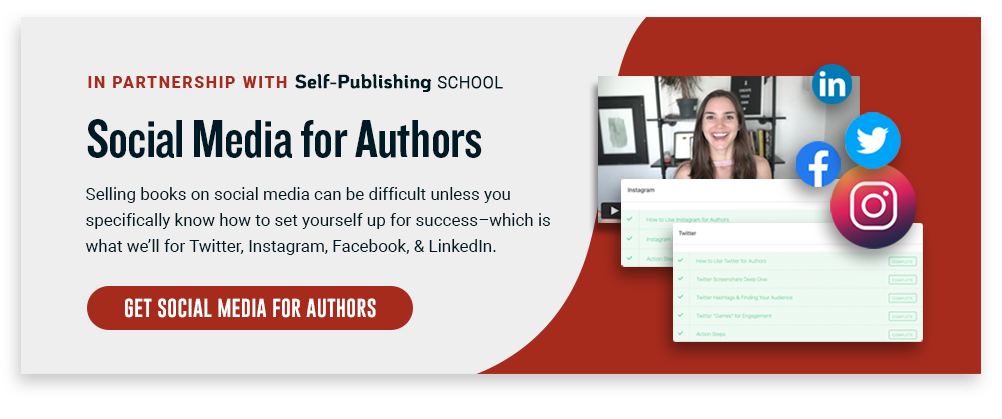There are a lot of book marketing myths out there, some of which are more outlandish than others.
When I was in college, one of the girls in my dorm terrified us with the “true” story of “The Hook,” a killer with a hook for a hand who attacked a couple in a parked car.
The storyteller insisted it was true because it happened to the cousin of a friend of a friend on Long Island. How could we argue with that? TRUTH!
You’ve probably heard the story, too, and by now we all know it’s a classic urban legend.
Urban legends aren’t limited to horror stories, though. In the book publishing industry, a better term for them is “myths,” and there are a lot of book marketing myths. They spread from author to author quickly thanks to online groups and social media. Authors believe and accept them automatically, probably because they see the myths repeated so often.
Accepting book marketing myths as fact can hurt your writing career, though, so let’s set the record straight on three of the most common.
Do any of these resonate with you?
Below you’ll find clarification on three common book marketing myths:
Myth 1: Traditional Publishing Is the Only Way to Go
You should pursue a traditional book publishing contract because the publisher will do all the marketing so you don’t have to.
Bwahaha!
Nope.
Your publisher will probably send advance review copies, but quite often, that’s it. The support you get varies from publisher to publisher but unless you’re in Celeste Ng’s league, you’ll have to do the vast majority of the marketing yourself.
Book publishing is a business. Publishers throw their marketing money behind those titles they think will sell the most. It might not be yours or mine.
Need proof? Ask any author with a mainstream publishing contract. Those who bought into this myth usually admit that they were naïve about what the publisher would do to market their books.
There are many valid reasons to pursue a traditional contract, but “the publisher will do all the marketing” isn’t one of them. That’s an urban legend that just won’t go away.
Myth 2: Copy What Other Authors Do
You will succeed if you just copy what other authors are doing.
Unlike plush hotel robes, book marketing isn’t one-size-fits-all.
Your book marketing plan will be based on your book’s target audience—those people most likely to buy your book. The people who will love your book aren’t the same people who will love mine, so we shouldn’t copy each other.
That doesn’t mean that you have to start from scratch, though. What you want to do is find authors with the same target audience as yours who are also successful. Copying somebody with different readers is a waste of time. So is copying somebody who isn’t selling many books.
For example, if you’ve written a book on entrepreneurship, find another author who has also done that, and done it well. Study that author’s social media accounts; Google the book to see where it’s been reviewed or media outlets that have interviewed the author. That’s when “copying” that writer’s approach makes sense.
Myth 3: Publish, Then Market
Once you’ve finished writing the book, you should wait until it’s published to start the marketing process.
Ideally, you’ll start actively marketing your book at least six months before your publication date. But if you’re like so many who waited until the Amazon link went live before even thinking about marketing, don’t give up.
Better late than never.
To enjoy the most success and exposure for the book you’ve put so much into, you want to start the marketing process early. That’s because you want an audience waiting for your book as soon as it’s available. Building that audience takes time and effort.
My article, “Book promotion timing: Implement these 9 strategies as soon as you’ve finished the first draft,” will give you ideas. Select one or two and learn how to do them well. Otherwise, you’re likely to get overwhelmed.
Your goal is to make sure you have the right network and tools in place to sell books as soon as yours is available. Some people have the network and connections they need even before they start writing. Others need to work on it.
Spend Time Learning
As with everything else related to the book publishing industry, knowledge is power. Take the time to:
- Learn as much as you can about book marketing long before your book is published. Then, when you come across conflicting information, you’ll be in a better position to evaluate what makes the most sense.
- Consider the source of the information rather than accepting what you’re seeing as fact. I’m in a Facebook publishing group that includes a vocal self-proclaimed expert who shares misinformation. And…people tend to believe the loudest voice, as if volume equals knowledge. Beware the loud “expert.”
- Think before you blindly accept what you see about book marketing online. For example, if someone insists that the best way to get reader reviews on Amazon is to ask your family members to write one, go right to the source: check Amazon’s terms of service. (That tactic is prohibited.)
Book marketing isn’t hard, but when you buy into common myths, it becomes more difficult. Don’t allow youself to be misled by publishing’s version of “The Hook.”
Let’s bust a few more myths! What other book marketing myths are you seeing or wondering about?



